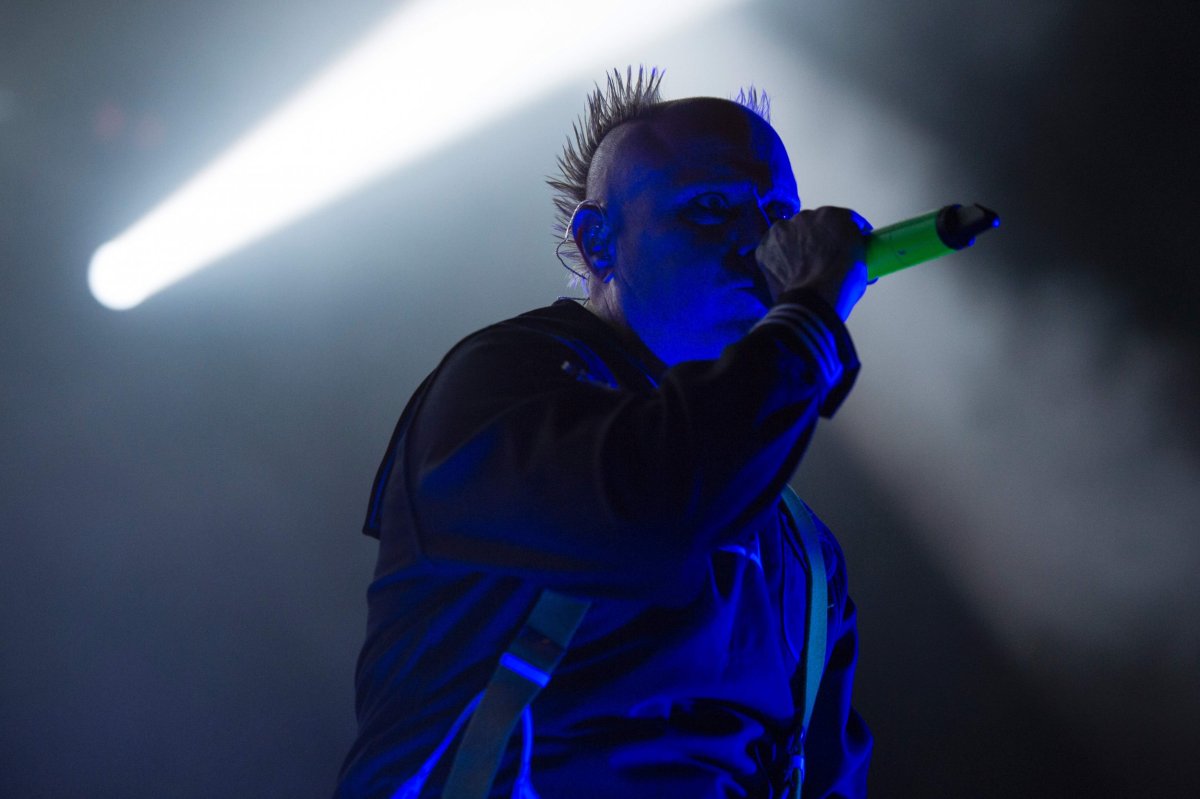Keith Flint, a key member of British electronic music giants The Prodigy, was found dead at his home in the east of England on Monday. He was 49.
Flint began his career with the group as a dancer, emerging from the U.K. underground rave scene in the late 1980s. He eventually graduated to the role of lead vocalist, going on to perform on a string of hits, including many of those that made the group a household name.
The Prodigy are considered one of the most successful electronic acts of all time, having sold an estimated 30 million records worldwide. They defined a generation with their hard-edged rave music and punk-inspired approach.
Below is a selection of The Prodigy's defining moments:
First single
In August 1991, The Prodigy released their first single, "Charly,"—produced by the band's songwriter Liam Howlett—which became a hit on the British rave scene and even went on to reach number three in the U.K. charts, helping popularize the style in the mainstream. Partly as a result of this popularity, some criticized the track for being just another "novelty" rave record (among the most notable criticisms came from seminal dance music magazine Mixmag, which famously posed the question "Did Charly kill rave?" on a 1992 cover.) However, the track has since gained a cult following and is seen by many as one of the landmarks of early rave music.
Music for the Jilted Generation
Three years later, the group released their landmark second album, Music for the Jilted Generation, which fused various strains of rave music—ranging from hardcore techno to jungle—with a fiery punk aesthetic. Despite their own growing popularity, the album was largely seen as a reaction against the growing commercialization of the rave scene in Britain, as well as the existential threats it was facing. During the recording of the album, the U.K. government passed the 1994 Criminal Justice Act, effectively criminalizing numerous aspects of the rave scene. Many commentators have linked the record's anti-authoritarian streak to this backdrop, although members of the band have at different times rejected the idea that the music was political in nature. Several publications have listed the album as one of the greatest of all time.
Firestarter and Breathe
Following on from, Music for the Jilted Generation, The Prodigy released two singles in 1996, "Firestarter" and "Breathe"—their first singles include vocal contributions from Flint. Both songs went on to reach number 1 in the group's native country, and also became their first international hits. The Grammy-nominated album the tracks appeared on, The Fat of the Land, eventually sold 2,600,000 copies in the U.S., and topped charts around the world. The release—in addition to headline sets at the iconic Lollapalooza and Glastonbury festivals—helped cement the band's reputation as one of the world's foremost electronic acts.

Uncommon Knowledge
Newsweek is committed to challenging conventional wisdom and finding connections in the search for common ground.
Newsweek is committed to challenging conventional wisdom and finding connections in the search for common ground.
About the writer
Aristos is a Newsweek science reporter with the London, U.K., bureau. He reports on science and health topics, including; animal, ... Read more
To read how Newsweek uses AI as a newsroom tool, Click here.








